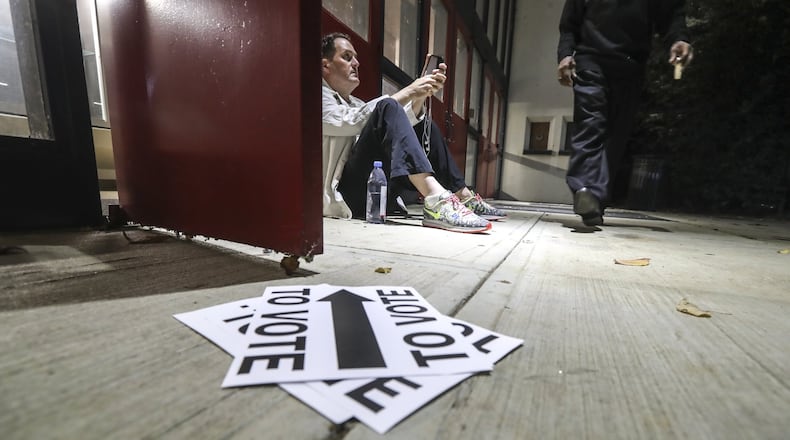This past week we celebrated the 54th anniversary of the Voting Rights Act of 1965 (VRA). While the 1870 passage of the 15th Amendment prohibited voting discrimination, post-Reconstruction racial turbulence (primarily in the South) meant many black and poor voters met with insurmountable barriers to voting.
There were literacy tests, poll taxes, property ownership restrictions. It also meant the disenfranchisement of black citizens and the loss of black representation in state legislatures and Congress. Passage of the VRA in 1965 gave strength and meaning to the 15th Amendment. It prohibited discrimination and barriers to voting.
For many years, states with the worst histories of voting access were required to have their voting maps approved by the courts. The idea was to ensure there was a level playing field for all voters. But in 2013, the U.S. Supreme Court gutted the VRA and over the years state legislatures began passing laws that required photo identification and “exact match” laws, requiring voters’ names to match exactly to state records — even if they were misspelled.
In recent elections, reports of incorrect names, incorrect addresses, incorrect polling places, voting machine malfunctions, long waiting lines and digital hacking have created this generation’s barriers to voting. These are our modern day barriers to the voting booth.
One fix to these mounting barriers is to replace Georgia’s now 20-year-old machines with a system that ensures ease of voting, while making it more difficult for nefarious types to hack the system.
Georgia’s Senate Democrats are pleased that the state is moving forward with replacing our voting machines and with the selection Dominion Voting as the new vendor. We were extraordinarily concerned about the potential conflict of interest between Georgia’s former vendor and elected officials and believe a combination of pressure from us and the community made this change possible.
At the same time, we have renewed our call for stronger post-ballot auditing, aggressive education for voters who will be using these new machines and training for poll workers.
While the new voting system does not include the hand-marked paper ballots we preferred, the system will provide a printed readable ballot to review. We have assurances that the Secretary of State’s office is pursuing software that would replace the BRE code on the ballot with non-computerized, readable data.
Over the years, we have seen how fragile voting rights and ballot box access can be. Now, we have experience on how fragile our modern digital voting system can be. The replacement of our voting machines and the vendor is a critical step toward creating greater transparency and security in our elections.
But let us be clear. This is a first step. We cannot overemphasize the importance of providing complete public education about the new machines, along with sufficient time for voters to see, touch and operate these new machines before election day.
We know that hand-marked paper ballots are the most secure and the most cost-effective balloting. Since the new voting system does not include hand-marked paper ballots, it is incumbent on us to ensure proper auditing throughout the voting process that includes protecting voter databases, ongoing monitoring for potential log-jams on election days, and a continued pursuit of transparency in every step and process we adopt.
We stand ready to work with our colleagues to help create the most secure election system possible.
We have a long road ahead of us to achieve the type of election security we need in an era of digital warfare. Safeguarding our election system is our priority.
We must remember, too, that democracy, fairness, transparency, access to the voting booth and protecting our right to vote is never a job that is completed. It is our job as citizens to ensure democracy survives. It is our watch now.
State Sen. Gloria Butler, of Stone Mountain, is chairwoman of the State Senate Democratic Caucus.
About the Author
Keep Reading
The Latest
Featured



